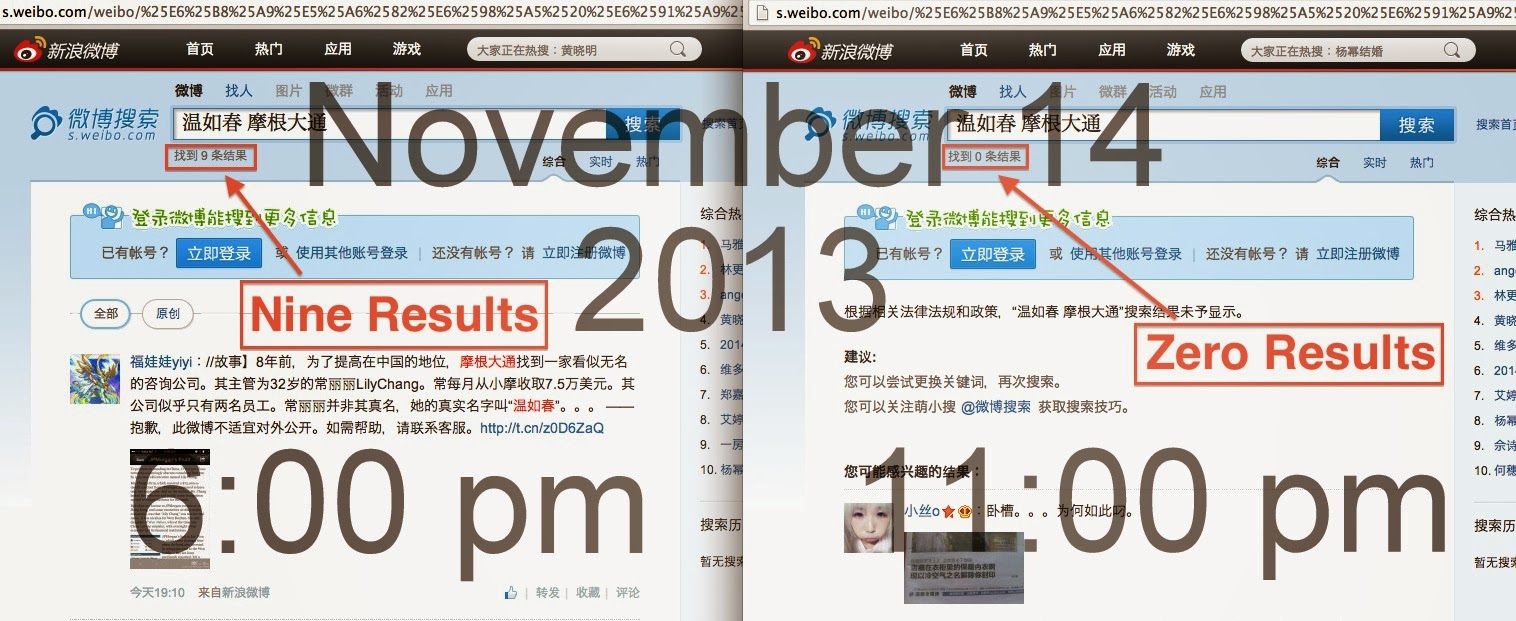On November 13, 2013, the New York Times published an article entitled "JPMorgan’s Fruitful Ties to a Member of China’s Elite" (摩根大通与温家宝女儿曾有商业往来). Some excerpts:
These screenshots show Sina Weibo was also censoring searches for "JP Morgan Wen Jiabao's Daughter" (摩根大通 温家宝女儿) and "New York Times Wen Jiabao's Daughter" (纽约时报 温家宝女儿).
This screenshot shows Baidu had also banned users from setting up a forum to discuss Wen Ruchun on its PostBar (Tieba 贴吧) product.
To promote its standing in China, JPMorgan Chase turned to a seemingly obscure consulting firm run by a 32-year-old executive named Lily Chang.
Ms. Chang’s firm, which received a $75,000-a-month contract from JPMorgan, appeared to have only two employees. And on the surface, Ms. Chang lacked the influence and public name recognition needed to unlock business for the bank.
But what was known to JPMorgan executives in Hong Kong, and some executives at other major companies, was that “Lily Chang” was not her real name. It was an alias for Wen Ruchun, the only daughter of Wen Jiabao, who at the time was China’s prime minister, with oversight of the economy and its financial institutions.These screenshots show that, shortly after the article's publication, Baidu, Qihoo, and Sina began censoring searches for "Wen Ruchun Morgan" (温如春 摩根).
These screenshots show Sina Weibo was also censoring searches for "JP Morgan Wen Jiabao's Daughter" (摩根大通 温家宝女儿) and "New York Times Wen Jiabao's Daughter" (纽约时报 温家宝女儿).
This screenshot shows Baidu had also banned users from setting up a forum to discuss Wen Ruchun on its PostBar (Tieba 贴吧) product.








